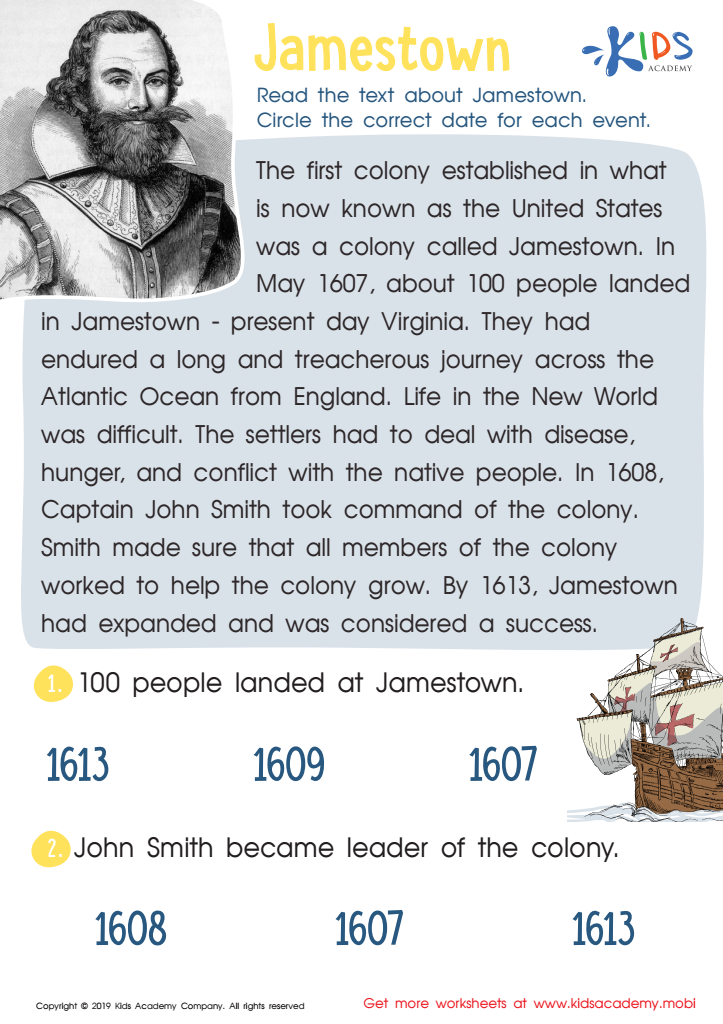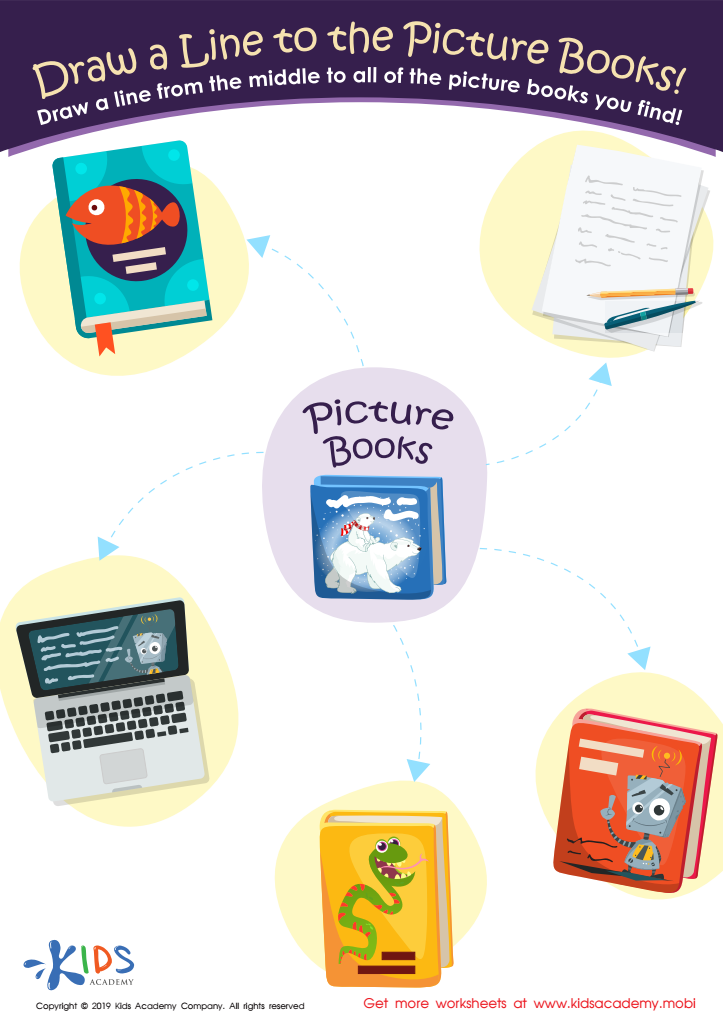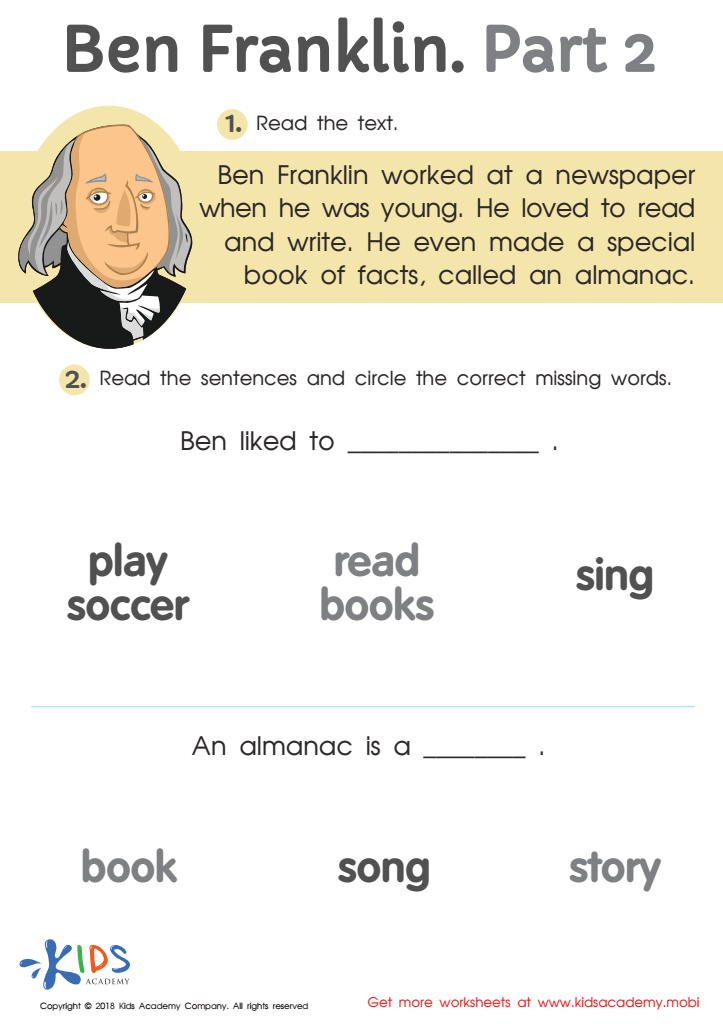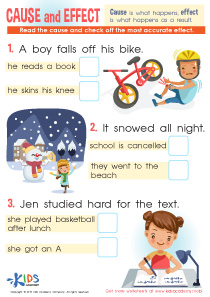Reading Skills Normal Reading Non-Fiction Worksheets
3 filtered results
-
From - To
Enhance your child's reading abilities with our "Reading Skills Normal Reading Non-Fiction Worksheets." These expertly crafted worksheets focus on developing essential skills such as comprehension, critical thinking, and information extraction from non-fiction texts. Designed for young learners, each worksheet presents engaging and educational content to help students build confidence in understanding and analyzing factual information. Perfect for both classroom and home use, our non-fiction reading worksheets support academic growth and prepare children for future learning challenges. Visit our webpage for a variety of downloadable resources to make reading a fun and enriching experience for your child.


Jamestown Worksheet


Draw a Line to the Picture Books Worksheet


Ben Franklin Part 2 Worksheet
Parents and teachers should prioritize cultivating strong reading skills in children, especially in non-fiction, as it plays an essential role in their academic and personal development. Proficiency in reading non-fiction material enriches students' understanding of the world by exposing them to factual information, diverse perspectives, and critical concepts. This skill not only enhances their knowledge base across various subjects such as science, history, and technology but also fosters the critical thinking needed to evaluate and synthesize information effectively.
Moreover, reading non-fiction boosts vocabulary, comprehension, and analytical skills, empowering children to navigate complex texts and better interpret real-world scenarios. These abilities are crucial not just for academic success, but also for making informed decisions in everyday life. Parents and teachers who emphasize non-fiction reading help children build a strong foundation for lifelong learning and problem-solving abilities.
Furthermore, cultivating an interest in non-fiction from an early age encourages curiosity and a love for learning, which are vital attributes in an information-rich world. It helps students to develop resilience and adaptability by understanding different viewpoints and fostering empathy through learning about diverse cultures and experiences. By supporting non-fiction reading skills, parents and teachers contribute significantly to the holistic growth and lifelong success of their children.
 Assign to My Students
Assign to My Students
















